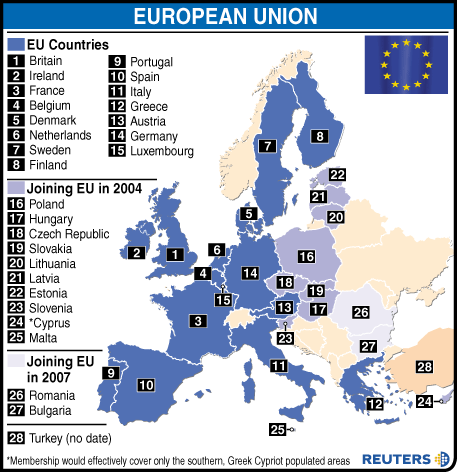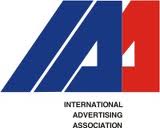


December 4, 2010 - The European Union (EU) is proposing a full-scale ban on branded cigarettes, forcing tobacco companies across the continent to sell their products in generic, plain packaging. Under the new rules, packs would carry nothing more than a health warning and the name of the brand, both in a standardized format with a specified typeface. Since cigarette advertising was outlawed across Europe in 2003, packaging -- known as "the silent salesman" -- has been the only way for cigarette manufacturers to keep their brands in the spotlight.
Australia - world set to follow Australian tobacco policy...
Opponents of the move have until December 15 to make their case heard, with a decision expected in February, 2011. Even if the EU decides in favor of plain packaging, it could take another five years before the law comes into effect -- especially if the tobacco companies carry out their threat to make a legal challenge against the ruling.
Andrew Lansley, the U.K. secretary of state for public health, believes that plain packs would de-glamorize the habit and stop young people from taking up smoking. (United Kingdom - govt wants cigarette packaging in plain brown wrappers..) But the Tobacco Manufacturers Association said, "We do not believe any plans for plain packaging are based on sound public policy, nor any compelling evidence."
But the Tobacco Manufacturers Association said, "We do not believe any plans for plain packaging are based on sound public policy, nor any compelling evidence." The International Advertising Association (IAA) has written to the EU to argue against the prohibition of on-pack cigarette branding. Erich Buxbaum, VP and area director for Europe, said, "All brands are registered trademarks. This could lead into a vast legal process -- companies will sue the EC. They pay a lot of money every year for their trademarks."
The International Advertising Association (IAA) has written to the EU to argue against the prohibition of on-pack cigarette branding. Erich Buxbaum, VP and area director for Europe, said, "All brands are registered trademarks. This could lead into a vast legal process -- companies will sue the EC. They pay a lot of money every year for their trademarks."
Imperial Tobacco, manufacturer of cigarette brands including Davidoff, JPS, Gitanes and Gauloises Blondes, called plain packs "unnecessary, unreasonable and unjustified." In a statement the company said, "Governments that consider introducing plain packaging risk breaching a range of legal and treaty obligations relating to intellectual property rights, international trade and European Union law."
Anne Edwards, director external communications, Philip Morris International, said, "To date every country that has considered plain packaging has rejected it due to lack of evidence and associated [intellectual property] issues. Even in Australia ... the government's own intellectual property body, IP Australia, recently advised ... that plain packaging 'may not be consistent with Australia's intellectual property treaty obligations' and 'would make it easier for counterfeit goods to be produced and would make it difficult to readily identify these counterfeit goods.'"
The counterfeit issue was also raised by Mr. Buxbaum, who claimed that 10% of all trade in Europe is in counterfeit goods. Illicit cigarettes, he said, deny significant revenues to European governments, most of which claim 50% of the sale price in tax, and -- according to the IAA letter -- "come with no guarantee about the ingredients and product safety." However, Action on Smoking and Health (ASH), a campaigning public-health charity in the U.K., said it has heard all these arguments before. Martin Dockrell, the organization's director of research and policy, said, "The tobacco companies used the same arguments against the tobacco advertising ban. They still retain their rights over their logos -- but it doesn't mean they can use them however they like. They can't use them on billboards and soon they won't be able to use them on packaging."
However, Action on Smoking and Health (ASH), a campaigning public-health charity in the U.K., said it has heard all these arguments before. Martin Dockrell, the organization's director of research and policy, said, "The tobacco companies used the same arguments against the tobacco advertising ban. They still retain their rights over their logos -- but it doesn't mean they can use them however they like. They can't use them on billboards and soon they won't be able to use them on packaging."
Mr. Dockrell said that unbranded packs would not lead to an increase in smuggling. He argued that branded and unbranded packs are equally easy for counterfeiters to replicate.
As well as the introduction of unbranded packaging, the EU is also considering a ban on in-store cigarette displays and on cigarette vending machines.
The IAA has chosen to concentrate its efforts on a protest against the packaging ban. Mr Buxbaum said, "I don't want to become a spokesman for the tobacco industry. I am concentrating on the packaging issue because plain packaging would kill branding." The IAA has no tobacco companies as members in Europe, although it does have a couple in the U.S.
Independent of the EU, the English parliament voted last year in favor of a ban on the display of tobacco products in shops in England. Larger shops will have to comply by 2011, while smaller shops will have until 2013. However, a change of government in May means that the new legislation is not guaranteed to go ahead. (UK government could scrap tobacco control plans..)
Also the European Commission is preparing to introduce legislation in 2011 to ban smoking in public places right across the union. (European Union - commission wants no exceptions to smoking bans..)
Reference: EU Proposes End to Branded Cigarettes Packages Would Carry Only Warning and Name of Brand in Plain Text, Posted by Emma Hall, Advertising Age, 12/1/2010.
Bringing the World of Tobacco Control closer together..
EU - proposing a full-scale ban on branded cigarettes..
Subscribe to:
Post Comments (Atom)


To Provide Public Awareness
Purpose
About Us
Contact Us
2008 HIGHLIGHTS
TOPIX PAPERS - 2008 & 2009..
Archive
-
▼
2010 (1530)
-
▼
11/28 - 12/05 (29)
- India - cigarettes and bidis manufacturers halt pr...
- EU - proposing a full-scale ban on branded cigare...
- RAI - announces executive appontments..
- Bulgaria - tobacco growers seeking more subsidies..
- South Korea - BAT releases Dunhill Orient as a li...
- Finally, Proof that Cancer is a Man-Made Disease..
- Following Lorillard's lead Philip Morris, Reynolds...
- Japan Tobacco - domestic release of a d-spec Mild...
- Hong Kong - as of December 1st smoking ban extend...
- NAAG asks R.J. Reynolds Tobacco to stop promotiona...
- United Kingdom - High Court upheld govt's plan t...
- Jamestown, NY - kids being targeted by cigarette m...
- Bhutan - strict application of the Tobacco Control...
- England - government releases white paper - emphas...
- India - Tobacco Board warns farmers against planti...
- Northern Ireland - 9 of 10 households would welco...
- India - revised pictorial warnings on tobacco prod...
- Lorillard - price increases take effect Tuesday, ...
- Windsor, Ontario - hospital halts practice of usin...
- Ghana - will tobacco tax increase bring changes ...
- Great Lakes Region of News South Wales, Australia...
- Raleigh, NC - may ban smoking in city parks..
- Indonesia - by banning smoking inside buildings sm...
- New York State - since tobacco tax increase state ...
- Indonesia - govt to raise cigarette excise up to 1...
- California - Kamala Harris next Attorney General..
- Greece - First Pan-Hellenic Congress on Tobacco Co...
- Buffalo, New York - wants to impose a fee to be ap...
- More: Marlboro Skyline Cigarettes..
-
▼
11/28 - 12/05 (29)
© Copyright Notice: The content of this website is for information education purposes only and any newsbrief may be used only as "fair use" for information/education purposes with permission of the authors and providing that original references and associated reference links are included in HTML format.
0 comments:
Post a Comment